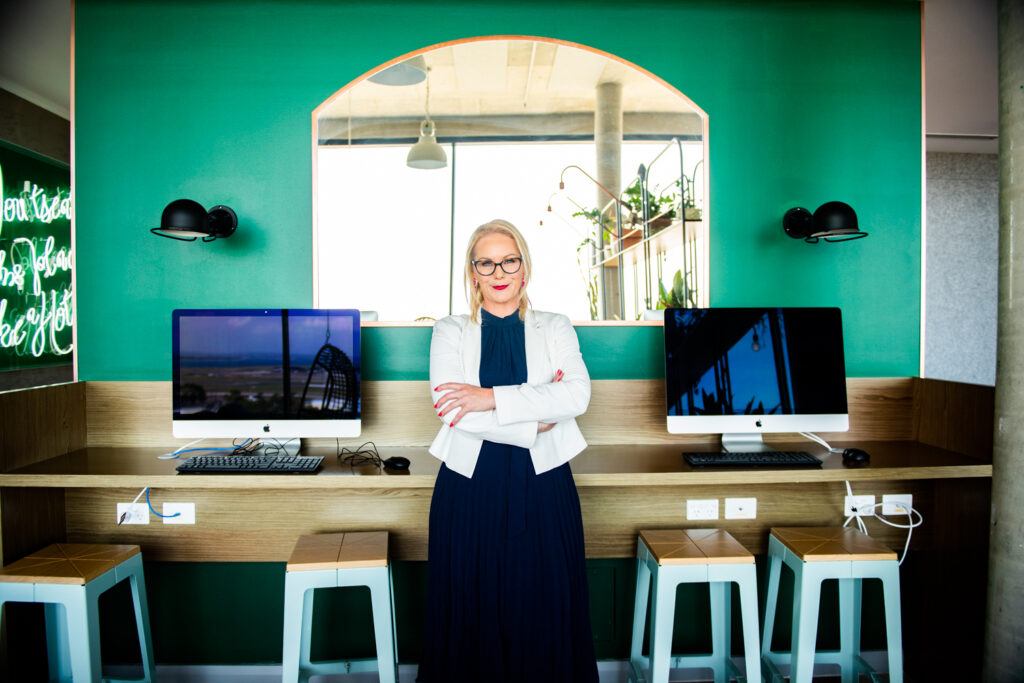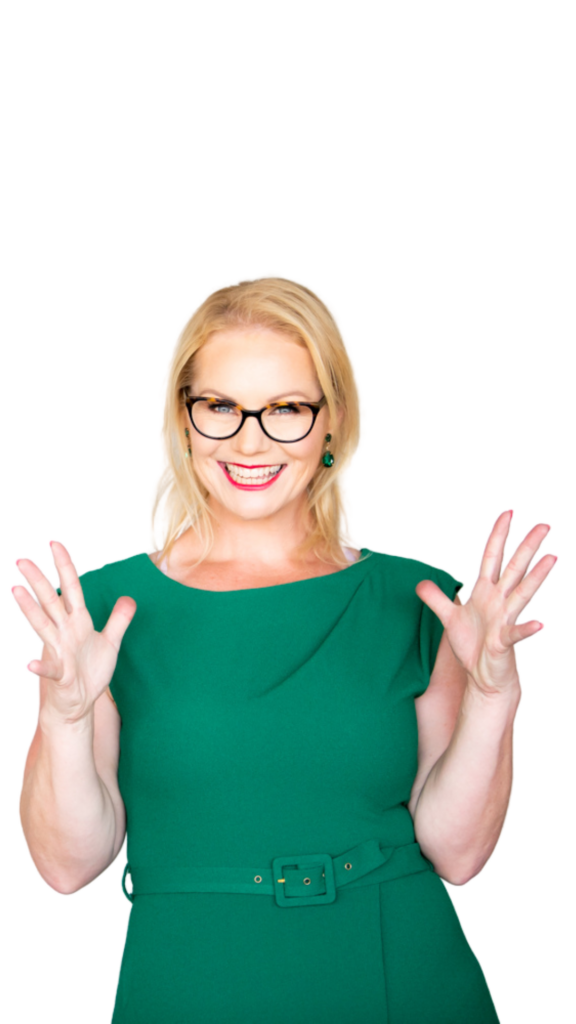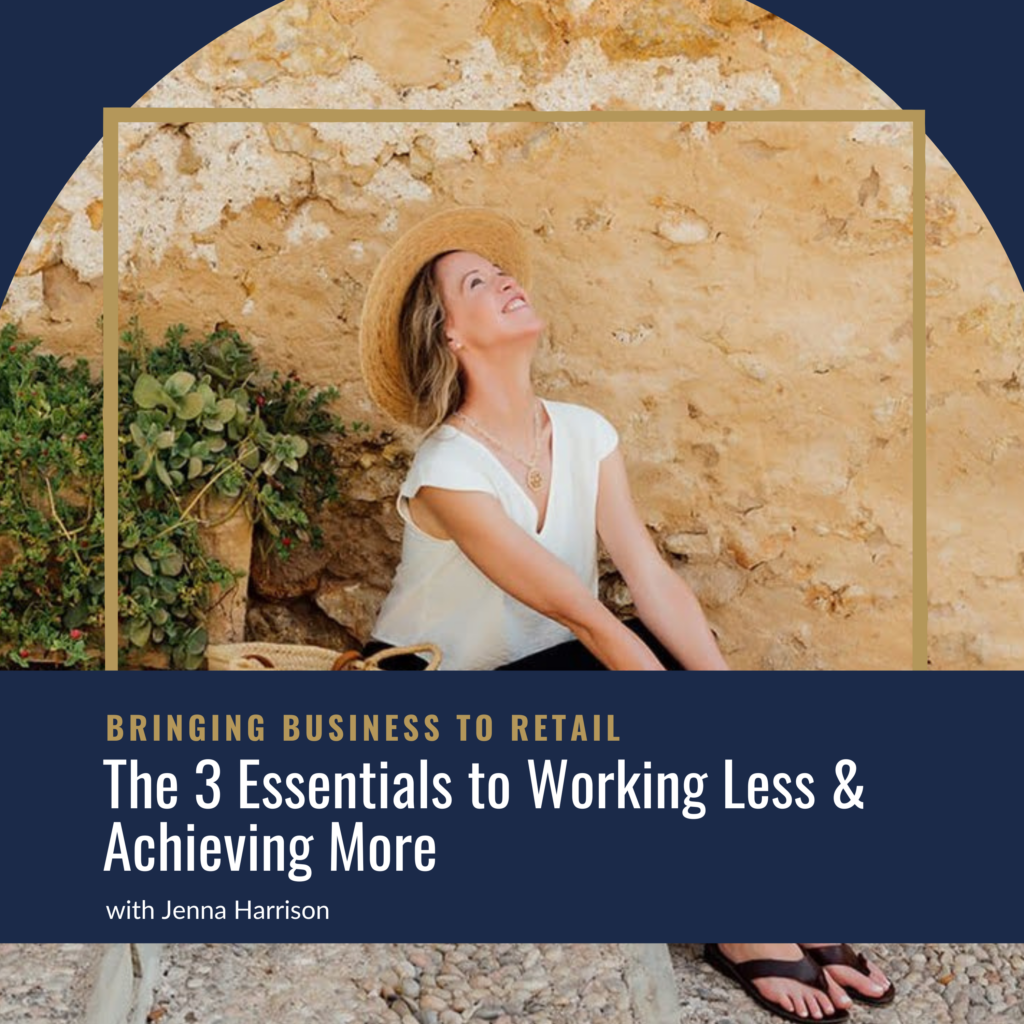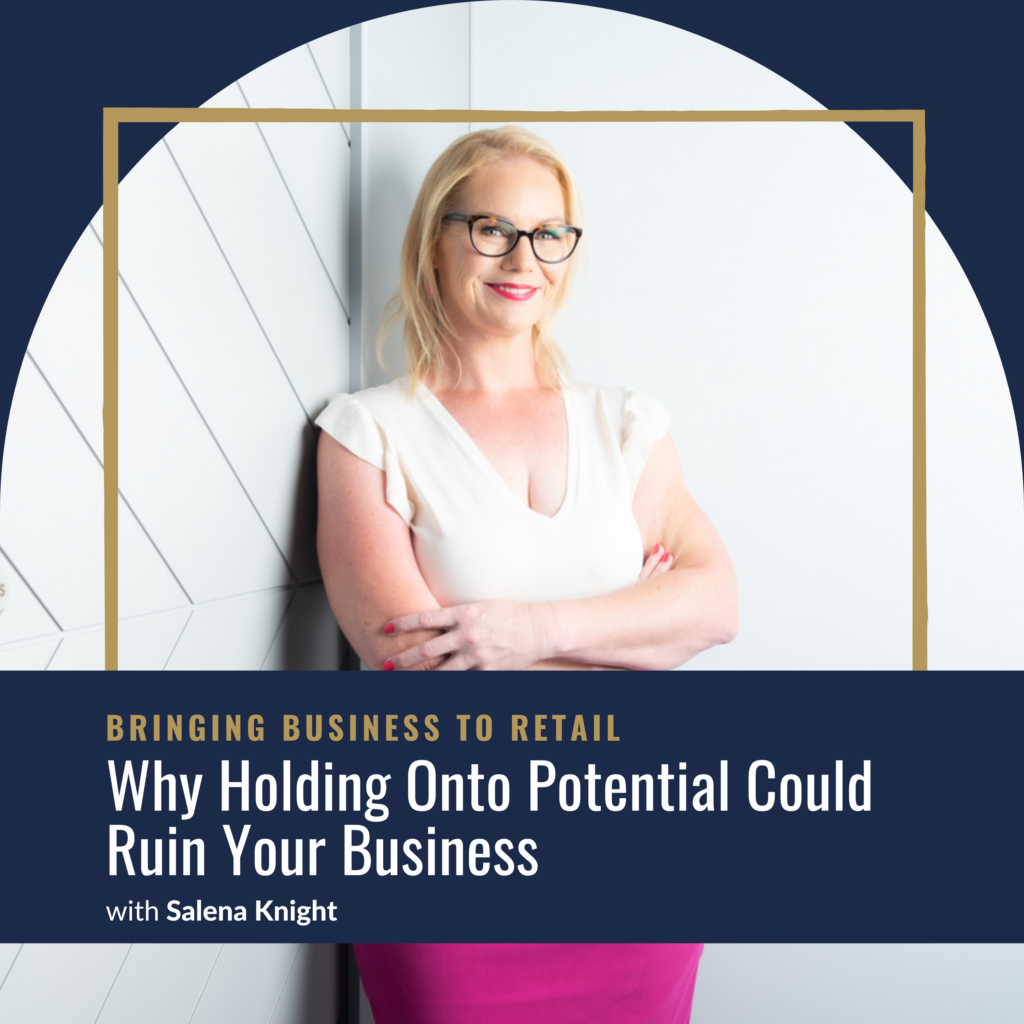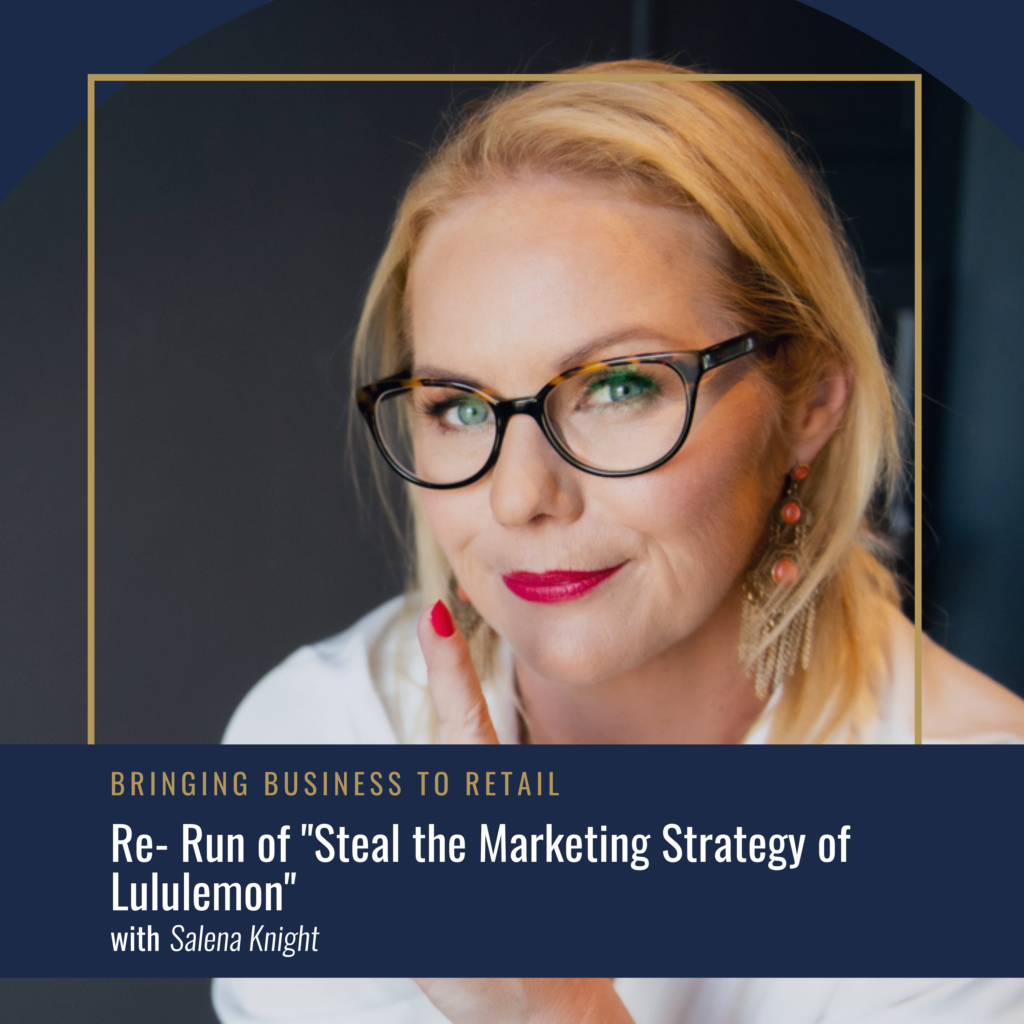
SHOW NOTES
Halfway through the year, I found myself staring at a massive opportunity that had been sitting on my “great ideas” board for five long years. But here’s the thing – taking it meant completely scrapping our carefully planned roadmap for the rest of 2025.
Sound familiar? If you’re running a successful business, you know that gut-wrenching moment when you have to decide: stick with what’s working or pivot for something potentially bigger.
In this episode, I’m pulling back the curtain on the exact decision-making process I used when this crossroads hit my business. I’ll walk you through my 4-step half-yearly reset framework that helped me cut through the noise and make a $1M+ decision with confidence.
You’ll discover how to identify what’s actually driving results in your business (versus what you think is working), the brutal honesty exercise that reveals what’s secretly draining your resources, and my proven method for deciding whether a new opportunity is worth disrupting your current success.
This isn’t about chasing shiny objects – it’s about strategic pivots that compound your existing wins. If you’ve been feeling stuck between staying the course and taking a calculated risk, this episode is your roadmap to making that call like a CEO.
Ready to stop second-guessing yourself and start making moves that matter?
-Sal
LISTEN NOW on The Bringing Business To Retail Podcast
I woke up a couple of weekends ago and realized they were just about halfway through the year. Now, I don't know about you, but it feels like equal parts. How the heck did that happen? And January feels like it was so long ago. Now, if you're anything like roast retailers that I've been talking with, you've probably been head down in the day to day, day-to-day, between managing staff tracking orders and juggling your marketing, it is easy to lose sight of where your business is actually heading.
Today's episode. Today, I want to talk to you about my half yearly check-in. Now, last week I went through this process in my own business, and although it can be equal parts painful and joyous, it's actually immensely satisfying because having a plan for me. Takes away the overwhelm. It gives both me and my team a really clear focus, which means we can then make targeted decisions on whether a so-called opportunity is really right for us, or if it's just a shiny object, throw it in to give you the thrill of something new.
Now if we haven't met before, I'm Selena Knight. I create solutions that make money for retail and e-commerce businesses, and welcome to the bringing Business to Retail show where we are going to talk all strategies about how to grow business yourself and your bank account. Now, the backstory for how I ended up going through this process, well, it's slightly ahead of midyear, but the reason I did this was because I'd been to an event.
And a huge ginormous opportunity had presented itself. Now, like I said, here's the backstory. This opportunity has been on my ideas board for five years. Yes, for five years I've had this concept, this idea. Sitting in my to-do list, sitting in my sales. Great idea board sitting inside of so many notebooks, but I haven't really known how to build it.
Now, if we haven't had this conversation before, I have learned that all of sales great ideas need to get parked on the sales great idea list for a minimum of 48 hours. Now, after that, I generally go in and review them because if you are anything like me. When you have a great new idea, you want to jump in and take action because it is exciting to be doing something new, which means you're telling your team, let's go off and do this.
Let's go off and do this, and they end up stressed and overwhelmed. And I can honestly tell you all of this came because back when I had my stores, I made one of my team members cry for that exact reason. I would come in every day with a brand new idea and she literally broke down one day and said. I'm sure it's a great idea, but I like what of the other great ideas do you want me to not do to start doing this one?
So it is a lesson I have learned that to curb my enthusiasm for new ideas. But like I said, this idea has been on my board for five years now. The growing of a business can be downright boring. And so it is really easy to get distracted by the thrill of the new, but you and I both know the growth is in the boring everyday work.
It is about putting systems in place. It is about creating process, it's about hiring, it's about training. All of that really boring stuff is what gets you to the next level over. The last 15 years, Sal's great ideas have literally gone from a piece of brown paper, which used to stick in the storeroom door, where I put all of my great ideas and then we would come back to them.
They have evolved. They've become sticky notes. They have become a sign of projects. But my key thing, and I, if you ever struggle with too many projects on the go, or overwhelming your team. Here is my piece of advice. Create your great ideas board and put your every great idea on it for at least 48 hours.
Then go back and review it. If it's still good, it might stay on the wall or on your project board, or you might give, you know, do a little bit of research into whether it is viable. So for me, going to an event and having the opportunity to. Finally see how this could evolve and how it could manifest itself.
That was where I had to stop. So I've learned the mistakes from jumping in with both feet. I know that it is stressful. I know that it often results, often nearly always results in a dozen, partially started marketing campaigns or projects that literally end up wasting everyone's time. It ends up wasting my money and it causes a lot of stress.
So now I have the board. So when this opportunity came up. In my head, I was at the event and I was like, oh, this is how it could work. Huh? The first thing I did was because I didn't have sales. Great idea. I already knew this idea was on the board. I literally phoned a friend. Yes. I phoned a friend who has worked in my business, who has been a friend of mine for many years, who has seen behind the scenes and the nitty gritty, and I, I said to her, this is the idea.
And she said, you've had this idea on the ideas board for like forever. And I said, yeah, I, I honestly think you should, you should, you should look into it a little bit further. So, because I'd never really known exactly what it looked like and I didn't have the resources and the team to be able to develop, and I didn't have the knowledge of hiring a development team.
This is not something that I've ever. Built into the structure of our business. It sat on the board, but we've never actually executed. And so there it's been sitting until about a month ago when all those Lego blocks that I had been dabbling with, they seemed to fall into place, which is a really long way of saying I need just to stop.
I needed to look at the business. I had to look at what I had planned out for the rest of this year, for the beginning of 2026, and I had to make a decision. As to whether I was going to make the call to change the plan that we had already agreed to for the rest of the year. This is big. Do I change or do I not?
Hmm. Now so much has changed in just 2025. There have been elections in the USA in Canada, in Australia, which is where most of the retailers that I work with are located. Interest rates are starting to fall around the world. It feels like the economy is. On the precipice of changing AI is making sweeping changes in pretty much every single part of our lives.
Now. We thought COVID sped up the adoption of technology into the retail and e-com industry. AI is moving so fast, it can feel impossible to keep up, and I just don't think as business owners that we can wait to do an annual review anymore. We have to be conducting these regular check-ins to make sure we aren't being left behind, but equally ensuring that we are not just ping ponging from one great idea to the other.
And so this is why I wanted to bring you this episode because. I had not planned to do a half yearly check-in if we do a quarterly check-in, but I had never really planned to do a big half yearly check-in and decide if the trajectory that we were on was where we were going to stay until this opportunity landed in my lap.
- And I needed to make a big decision. So I thought it might be helpful to go through this simple four part framework that I use to check in on your business to get clear on what is working and what is holding you back and what to focus on so that you can end this year stronger than where you started.
Today's episode is literally your permission slip to pause and reset. This is your half yearly check-in sales style. Alrighty, grab your pen and paper, grab your notes because let's dive in. Now step one is probably going to come as no surprise to those of you who have listened to the podcast for a while.
First of all, we are going to start with what is going well, because let's be honest, we rarely give ourselves credit for all of the things that are quietly working in the background. Remember, the growth is in the boring work. Now, I don't know what it is, but the business owners that I've worked with have this innate ability to throw what is working.
To try something new, even if it's proven to work. Even if it is bringing in the dollars, something happens where they go, huh, let's just try something different. So step one of my framework, I want you to ask yourself what is actually working in my business right now? And this could be a product range that keeps selling out.
It could be a team member who is just stepping up and taking ownership of something in the business. It could be a campaign that is bringing in consistent traffic or consistent sales. Or maybe your checkout process is finally smooth and customers are flying through with post-purchase upsells. Take a couple of minutes to just write these wins down.
Now here's what I've found. It might be a little bit hard at the beginning. But once you get started, I find that they just keep on coming. If you get stuck, ask your team. Ask your freelancers, your contractors, ask the agencies that you work with, what has worked well, jump into your Shopify or your POS and poke around.
I mean, heck, I even opened up the photos app on my phone, and then I remembered a bunch of things that I'd completely forgotten about. These do not have to be massive. But when you identify them, you can start to double down on what is already delivering. And if you are like me and you're trying to decide whether to take up an opportunity, this is where you're going to have to, whether pedal meets the road, the metal, what this is, I dunno, whatever the, whatever that saying is, this is where you stop and go, huh?
Am I prepared to change something that is working? So if you wanna go a step further. Check off all of the things that feel really easy or they're automated in your business because that is a sign that something is working. Do you wanna go even further than that? Pick one of those and ask What would it look like if I wanted to scale this?
All right. That's just step one. Step one, what is working? Step two is about reviewing. Next. It's all about honesty Now. I have found that this part stings a little bit, or maybe you are the kind of person who can just pick up the pen and go to town. But what I have found is that this part, the review is probably the easiest, most gratifying task I give my one-on-one clients.
Are you ready for it? Ask yourself, what is draining me? What is draining me? It could be time, it could be energy, it could be money, it could be bandwidth. It could be a platform that you keep posting on but never converts that drains your time and your potentially your energy, and likely even your money.
It could be a supplier who is always later delivering their product. That is time, money, and energy all down the drain. It could be a hero product that you love. But that just doesn't sell, that my friends is draining your profits. And I have had way too many of those in my retail and e-commerce businesses.
It's like, but why don't you understand? This is an amazing product. Why don't you wanna buy it? Now, it could also be a routine or a mindset that is locking you into reactive mode. So maybe you are answering the same questions over and over and over again, or you have a team member who just can't follow a process.
I mean, we've all been there, right? So I want you to list out all of the things that drain you. And this is not about beating yourself up. It is about articulating what is not serving you and what is not serving your business so that you can put a plan in place to eliminate, to delegate, to automate. So once you have that list, find three things that feel like a constant struggle, and then simply ask yourself, what would happen if I stopped doing these for the next 30 days?
Huh? Do you really need to be doing them? What would happen if I stopped doing them, but also, what would happen if I stopped doing this and gave it to somebody else? So choose those drains. Make a decision. Are you gonna ditch it? Are you gonna delegate it, or are you gonna change the way that you're doing?
You know, I love automation. We love ai. All right? So far, we have done a review of what drains us. We have also looked at what works in our business. Step three is refocusing. So let's fast forward to the end of the year, and this is what I had to do, what needs to happen between now and December for you to say, yes, this year was worth it, not.
I survived, but I grew, I scaled. I built something that I am proud of. I want you to write this down. This isn't some kind of vague goals, like make more money or get more sales. You need to quantify it. You need a clear, measurable outcome, something that you can track. Something that moves the needle. Maybe it is hitting a monthly revenue milestone, or finally getting your tech stack sorted.
Maybe it's building your team so that you are not in the weeds every single day. What needs to happen between now and the end of the year for you to get to that next level that you want to hit? So set a goal. And look at what would change in your business if you hit it just one. Just take one of those things and think, if I hit it, what would change in my business?
And then, you know me, I love to break it down and just go, so what needs to happen in the next 30 days to move closer to that? What one small step can I make to get me closer to that goal? Put it in your calendar, book it in, get it done for me. Refocusing was reviewing our revenue targets and looking at what worked and what was draining both me and my team, and then assessing those lists against the milestones that we'd put in place.
What did we need to change? What could be automated? What needed to be crossed off the list or moved to 2026, and what were we going to ditch? What were we going to eliminate? If we decide to take on this other project, because we just simply do not have the resources now to do what we have planned to do and something extra.
So step three, refocus and step four is realignment. And this is where we gut check how you are showing up in the day-to-day. Are you showing up like the CEO of your business or are you stuck being the most overworked staff member? When it comes to that refocusing, that idea, that promotion, that ads campaign that you want your team to run, think about whether this is just gonna be more work for you.
Will you truly get a return on investment if you Go ahead, I. Because again, what I have found, I want you to learn from my mistakes. Friends, what I have found is that I can have a great idea and all that ends up happening is I take on more and more work, and I do it because I feel guilty. I do it because my team are already loaded up and this is where I'm, I'm sharing this episode with you.
This is where I am explaining that. For me to make a change, I'm gonna have to cut something in our business that we had planned to do. So think about that. When you are refocusing the thing that you need to do to get you to where you want to go, is it going to be more work for you? And will you truly get a return on investment if you go ahead Now, you cannot scale your business if you are doing every task every day, or if every growth strategy that you want to implement requires you to work more.
So start by asking yourself, am I making decisions based on data or am I making decisions based on my gut? And this is where I am right now. I have a gut feeling, but I need the data to back whether we move ahead or not. And so here I am putting it out there. I'm going in and I'm get, I'm putting my money where my mouth is to collect the data.
I am researching, I'm making decisions. So you have to think about that. The decisions that you are making based on data or gut. Now, sometimes you aren't gonna make a decision based on your gut. That's business. But if you can make a decision based on data, you have a much higher likelihood of success. And then ask yourself, do I want to do this because I am bored or because I have reverse engineered this and I can see that it has legs?
Honestly, I feel like having a post-it note on your wall that says, am I doing this because I'm bored? Could be the key to you scaling your business. And I know that that is the case for me. Like my days are filled with boring stuff. It's hilarious. The team that do my social media we're like, we need some B-roll footage of you.
Like, show us what you do every day. I'm like, I sit behind my desk on Zoom meetings for many, many hours of the day. That's, you know, there's only so much of that that you can put in. And so it is really easy to become distracted. 'cause you are bored with the every day. So for me, in this decision, I have reverse engineered what this looks like.
I am going out and speaking to people who've done something similar and, and saying, what are the obstacles I might hit? What are the unforeseen budgetary constraints that I might not know about? So ask yourself. Am I doing this because I'm bored? Am I starting this new campaign? Am I bringing in this new software?
Am I bringing in a new product range just because I'm tired of seeing the same old stuff? Or is it because I've done the research and I know that this has the opportunity to bring me a return on investment? Okay, so you decided to go ahead with something. You're doing this half yearly check in, and you've decided that you need to make some changes.
Think about blocking out. How much time you currently block out to work on growth versus the firefighting? There are parts of my team who literally have an hour a day put aside for firefighting, so things like development, product development, there are bugs in software all the time, so they have time set aside, literally for firefighting.
It's in our calendars as firefighting now. Some days nothing goes wrong, which is awesome. They just move on to the next task. If you haven't budgeted time for firefighting and then budgeted time to work on your business, how are you going to implement the things you want to implement? So even if you're not like me, even if you're not making a big decision as to what to change in your business, you're just looking at, okay, we are here right now and by the end of the year we want to be here.
Are we on track to hit that? Are we on track to do better than that? What do we need to implement to make sure that we hit our good, better, best targets? You have to block out time to work on your business. I don't care if you're a solo entrepreneur or if you have a team of 50. If you do not have that time in your calendar, I call it strategic in my calendar.
I call it strategic thinking time. I have different blocks for different things, but strategic thinking is literally me putting time aside to think because it is so easy to fall into that trap of procrast to working, which is I'm gonna do thinking today because I can't be bothered doing boring stuff.
It's like, well, no, this is not your allocated thinking time. I know this sounds so rigid and regimented. But when you move to thinking time, when you are supposed to be in a doing time, all of a sudden you are not going to hit your goals. All people are waiting for you. So this is why it is. Listen to the podcast.
I talk a lot about calendar blocking and how the team have adopted it to make sure that we are working on the same things and we're on the same page. So blocking out time for growth versus blocking out time for firefighting, because if you are doing more firefighting than working on the business, how are you going to achieve your goals for the second half of the year?
And then I want you to just look at whether you do weekly check-ins with your team. So are you doing check-ins? Are you aligning them with where you're supposed to be or where they're supposed to be? Or are you not doing that? Or is it just chaos? Is every conversation that you have trying to fix something that didn't work or something that is broken?
So your little exercise for this is to look at your calendar from the past week and what percentage of time was spent on, let's call it admin versus, or firefighting versus that high impact growth focused tasks that are designed to get you and your team to hit your goals. Hmm. Yes. From there, choose one recurring task that you can delegate or automate this week.
It could be a weekly stock reorder, just something to get off your plate so that you can put more time into that growth phase of the business. That growth phase, that growth block in your calendar to grow your business now. I can't believe I'm saying this, but you've got just over three months before we hit the so holiday season, and for most of you listening, September to December is when you are going to make the vast majority of your revenue.
So if you are floundering right now, if you are in chaos, if you're spending too much time firefighting or you are listening to this podcast thinking, huh, I really must sit down and map out a plan for the rest of the year, then I urge you to take some time out. And to actively go through this half yearly review, I've just walked you through my four step framework to reset your business for the second half of the year.
Reflect on what is working well. Review what is draining you, what is dragging you down, refocus on how you're going to hit those goals that you've mapped out. And if you haven't mapped those goals out, this is the time. Sit down and do it, and then realign how you are showing up in your business. Do not let this sit in your notebook.
Lock out 60 minutes this week and actually do this. Be the person who doesn't just listen to the podcast, but takes the advice and actually does it go somewhere quiet. Grab a coffee, map it all out, and then take one. Just one. Bold action. Because that is how you build momentum. The truth is you probably don't need another hack or another trend.
Remember, it's in the boring work. You need clarity. You need consistency, and you need confidence in where your business is going, which means you need to be accountable for how both you and your business are showing up. You've got this. Now, if this episode gave you that. Huh, this is what I needed to hear feeling.
I would love if you could take a screenshot, share it on Instagram or TikTok or any of the socials, and tag me at the Selena Knight because I would love to know what your one big goal is for the rest of the year. Until next time, keep pushing forward. Be the CEO and I will see you on the next episode. So that's a wrap.
I'd love to hear what insight you've gotten from this episode and how you're going to put it into action. If you're a social kind of person, follow me at the Selena Knight and make sure to leave a comment and let me know. And if this episode. Made you think a little bit differently or gave you some inspiration, or perhaps gave you the kick that you needed to take action, then please take a couple of minutes to leave me a review on your platform of choice.
Because the more reviews the show gets, the more independent retail and e-commerce stores just like yours that we can help to scale. And when that happens, it's a win for you, a win for your community, and a win for your customers. I'll see you on the next episode.
Share this episode
Watch The Video

Ready For More?
Facebook-f Instagram Linkedin LISTEN NOW SHOW NOTES As we wrap up another incredible year on

